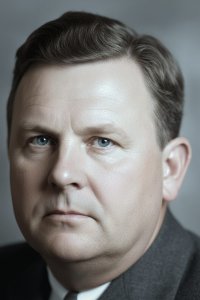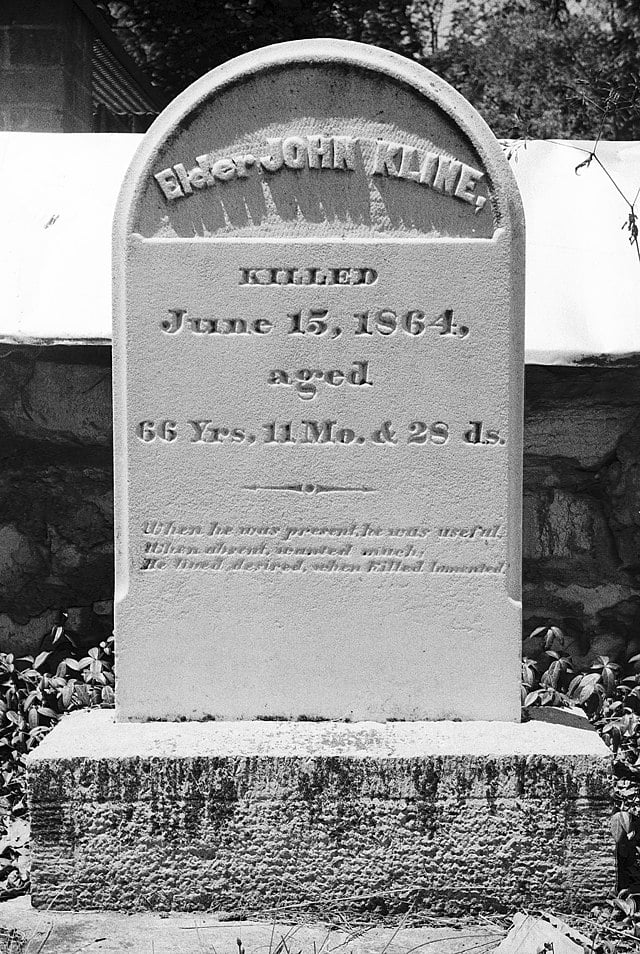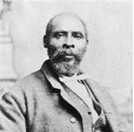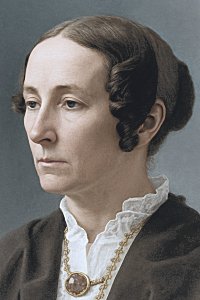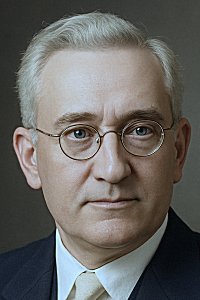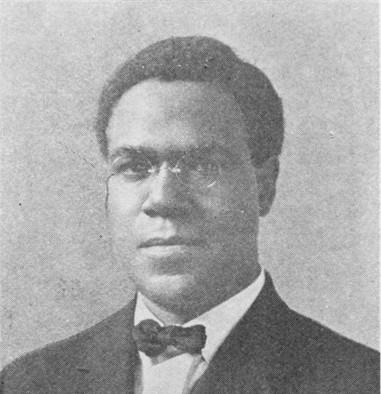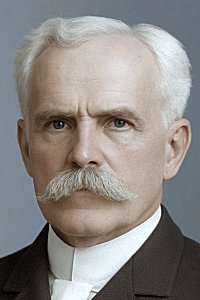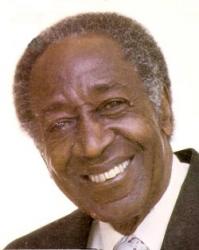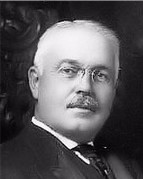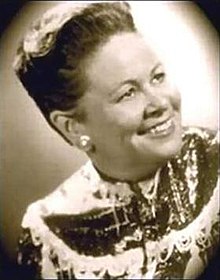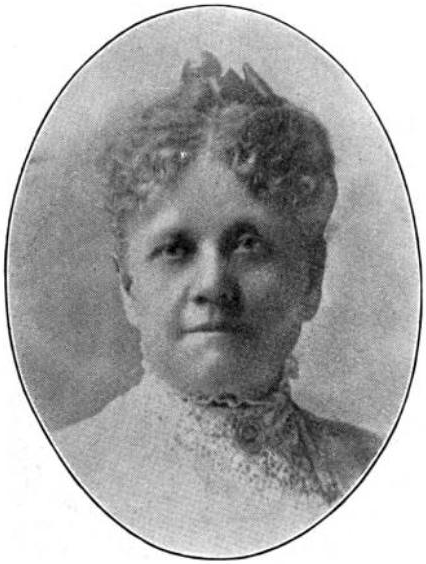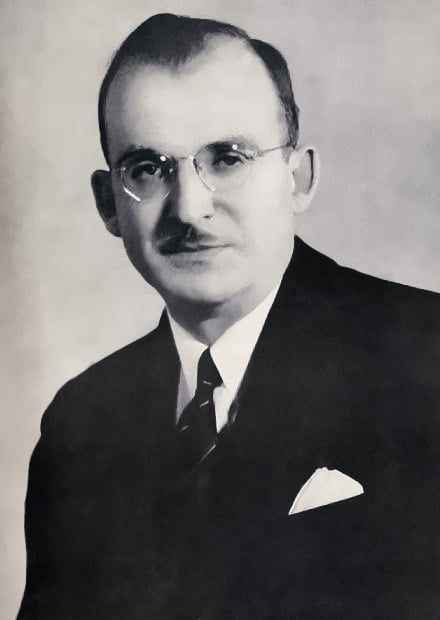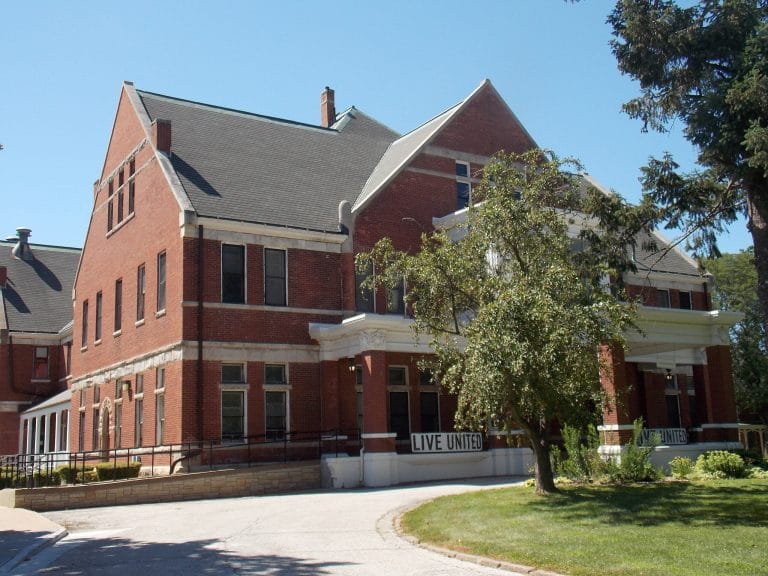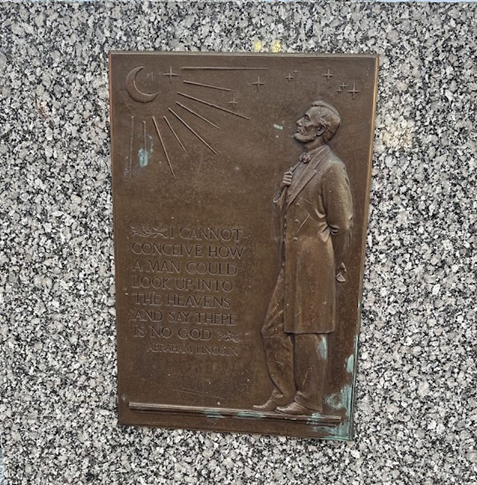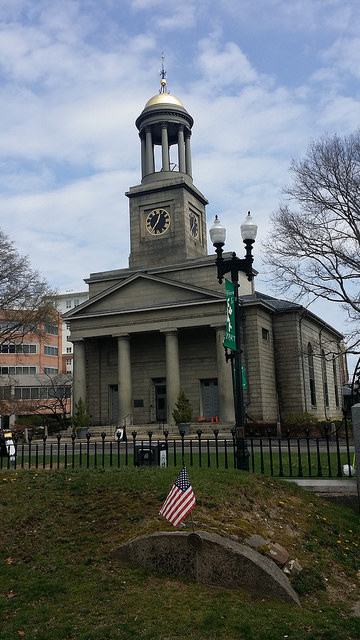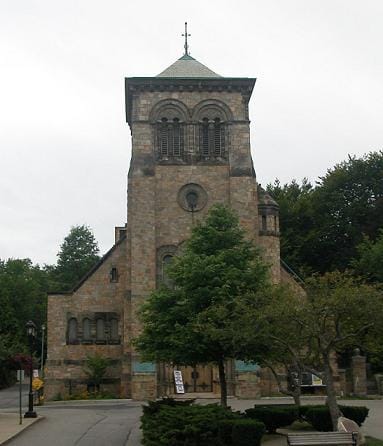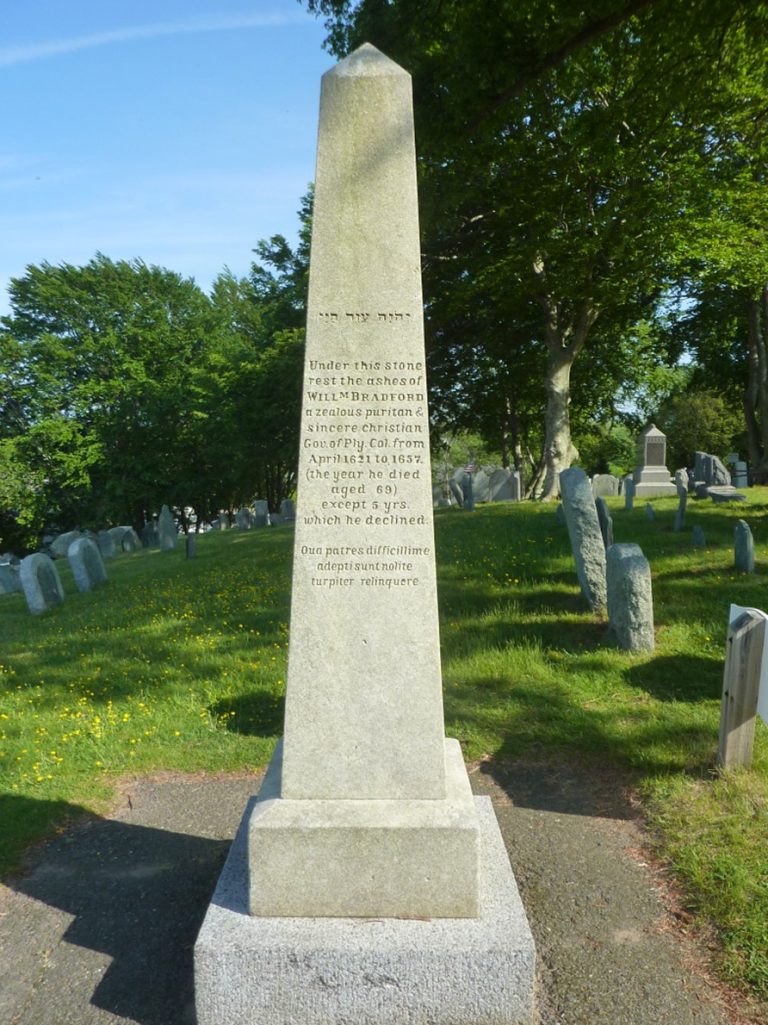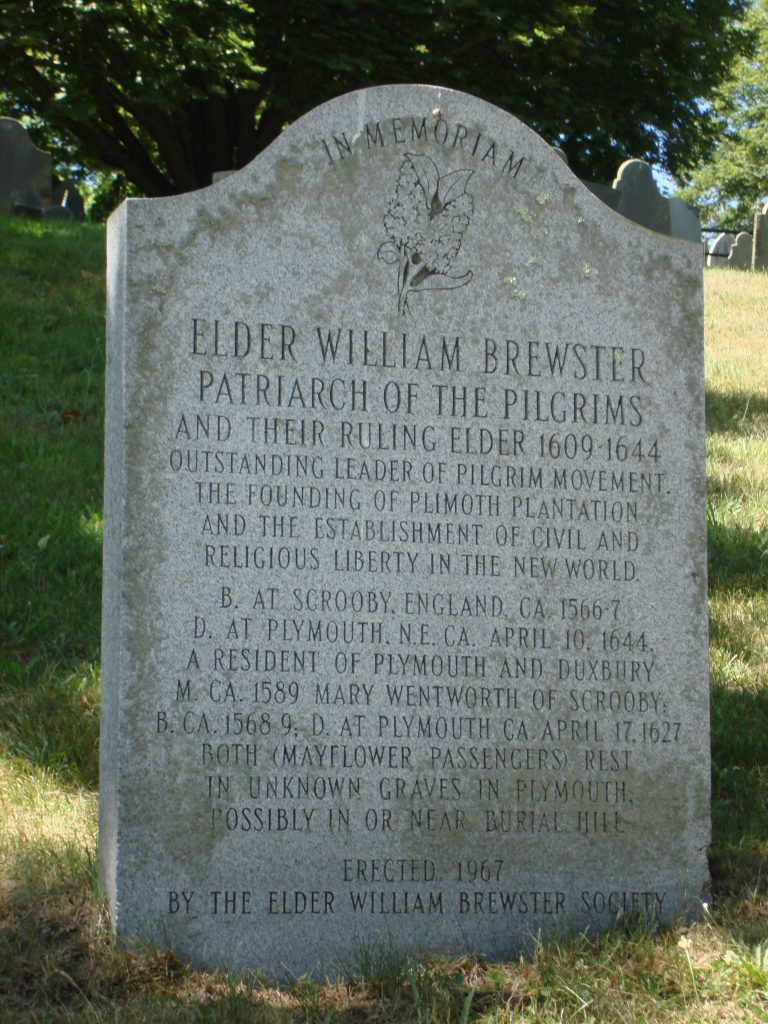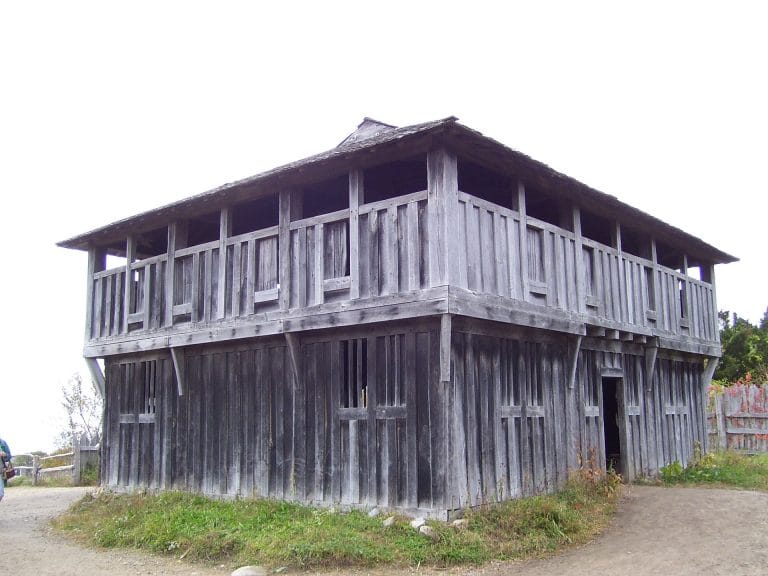Favorite
Hymn History: Victory in Jesus Author: Eugene Monroe Bartlett Sr. Eugene Monroe Bartlett, Sr., was laid to rest at the Oak Hill Cemetery in Siloam Springs, Arkansas, only two years after suffering a debilitating stroke at the age of fifty-four. Bartlett was quite the musician, having composed several hundred hymns during his lifetime and founding the Hartford Music Institute Read more...
Favorite
“Stephen’s living face was as the face of an angel. Brother Kline’s dead face was the face of a saint—no, not the face of a saint, but the face of the earthly casket in which a saint had lived, and labored, and rejoiced; and out of which he stepped into the glories of the eternal world. Amen!” (Benjamin Funk, Life Read more...
Favorite
“I sat down and counted the cost, freedom or confinement, liberty or a prison; it admitted of no dispute. Having ventured all upon Christ, I determined to suffer all for Him.” James Ireland was perhaps the most afflicted Baptist pastor of all the men who were held in the Culpeper Jail in the mid 18th century. There were no modern Read more...
Favorite
“I have finished my work, I am waiting at the River, looking across for further orders.” So ended the life of one of America’s most notable African-American preachers. In fact, one biographer called John Jasper “the most famous of all the slave preachers.” (Dance, “Jasper, John.”, The Greenwood Encyclopedia of African American Folklore, 2006), while another entitled his biography Read more...
Favorite
Hymn History: Jesus Loves Me Author: Anna Bartlett Warner “You have rendered a real and patriotic service, and on behalf of all our people I desire to express our obligation and our appreciation.” (President Theodore Roosevelt in a letter to Anna Bartlett Warner) The Origin of the Hymn “Jesus Loves Me” Few hymns in the English-speaking world have Read more...
Favorite
Hymn History: The Love of God Author: Frederick Martin Lehman Were all the skies parchment, And all the reeds pens, and all the oceans ink, And all who dwell on earth scribes, God’s grandeur could not be told. Rabbi Meir Ben Isaac Nehorai Frederick Martin Lehman was born in Schwerin, Germany – a town east of Hamburg about Read more...
Favorite
Hymn History: Go Tell It on the Mountain Publisher: John Wesley Work Jr. The fact that we sing “Go Tell It on the Mountain” every Christmas is really a credit to the tenacity of John Wesley Work Jr., a former professor of Latin, Greek, and History at Fisk University in Nashville, Tennessee. In fact, C. Michael Hawn says bluntly: “’Go, Read more...
Favorite
Hymn History: Trust and Obey Author: John Hanna Sammis If you turn into the main entrance of Forest Lawn Memorial Park in Glendale, California, and make your way east on Westminster Road, you’ll pass the grave of Red Skelton and Elizabeth Taylor. Just after the final resting place of these two famous people is “Section L” – the portion Read more...
Favorite
Hymn History: Just a Little Talk with Jesus Author: Cleavant Derricks “The same songs that ministered to impoverished blacks enduring discrimination in the Jim Crow South, spoke to the hearts of disadvantaged whites whose lot seemed similarly dismal…” (Greg Freeman) The Origin of the Hymn “Just a Little Talk with Jesus” Few gospel songs capture the heartfelt simplicity Read more...
Favorite
Hymn History: I Will Sing the Wondrous Story Author: Francis Harold Rowley “The first element in worship is adoration. The Hebrews expressed this by their posture and not alone my their word. For they prostrated themselves before God. O come, let us worship and bow down: let us kneel before the Lord our Maker.” (Francis Harold Rowley) The Read more...
Favorite
Hymn History: Sweet, Sweet Spirit Author: Doris Mae Akers “Her music was a special gift, and she gave God all the glory for it. It wasn’t her, it was God that put that gift into her possession.” (Rev. Willa Grant Battle, Founding Pastor of Grace Temple Deliverance Center in Minneapolis, Minnesota) Born in Brookfield, Missouri, on May 21, Read more...
Favorite
Hymn History: Grace Greater Than All Our Sin Author: Julia Harriette Johnston I have partly learned some of my lessons, Some others but dimly I see; I was ever, I think, a slow learner: My Teacher is patient with me; So patient and tender and loving, So gentle and kindly His rule, I care not how simple my lessons, Read more...
Favorite
From Reach Beyond (HCJB): One Sunday morning at Lake Harbor, Paul Rader gave a missionary challenge, and at the invitation, Clarence, who had been leading the singing, went forward to give his life for missionary service. Rader was greatly moved. “God bless him. We need Clarence Jones here in this work. But if God wants him in missionary work, Read more...
Favorite
Tabernacles & Sawdust Trails: F. J. Sessions, Superintendent of the Soldiers’ Orphans’ Home, at Davenport, says: “Howard E. and William A. Sunday were admitted to this institution by transfer from the Glenwood, Iowa, Soldiers’ Orphans’ Home when the latter was closed January 29, 1875. They were admitted to the Glenwood institution September 25, 1874. Dismissed from this institution June 10, Read more...
Favorite
President Abraham Lincoln spoke September 30th, 1859 at the Wisconsin State Fair. This campaign speech was his only speech on agriculture. He would create the U.S. Department of Agriculture two years after being elected as President of the United States. In recognition of then-Candidate Lincoln’s speech, a granite marker with a brass plaque was placed by the 4th Congressional District Read more...
Favorite
Place where John & Abigail Adams, and John Quincy & Louisa Catherine Adams worshipped and are buried. Of interest is a letter from John to Abigail about his thoughts on church: Phyladelphia Octr. 9, 1774 My Dear I am wearied to Death with the Life I lead. The Business of the Congress is tedious, beyond Expression. This Assembly Read more...
Favorite
The Pilgrims who gathered first in Scrooby, then moved to the Netherlands, then they worshipped together in the Mayflower as they sailed in 1620. Their meetinghouse was the fort (depicted at Plimoth Plantation but originally located on Burial Hill), then moved down the hill to the current location. In 1801, the Trinitarians left in the split (identifying with the theological Read more...
Favorite
William Bradford, signer of the Mayflower Compact and Governor of Plymouth Colony for over thirty years. His memoir, Of Plimoth Plantation, preserves the history of the Pilgrim migration. Image Credit: File:of Plimoth Plantation First 1900.jpg – Simple English Wikipedia, the Free Encyclopedia. 1900, simple.m.wikipedia.org/wiki/File:Of_Plimoth_Plantation_First_1900.jpg. Read more...
Favorite
William Brewster was pastor to the Pilgrims during and after the Mayflower Voyage. The only University-trained member of the voyage, he was the spiritual leader of the group. The Pilgrim Voyage is the subject of the Brinkman Adventures series: Freedom. Image Credit: Frazel, Midge, and Midge Frazel. “William Brewster Memorial Stone.” World History Encyclopedia, 14 Feb. 2026, www.worldhistory.org/image/13111/william-brewster-memorial-stone. Read more...
Favorite
The Pilgrims did not seek to build fancy houses of worship like those of the Church of England that they left. Rather they met in the fort for collective worship. The church later had its own building at First Parish Church. Image Credit: Swampyank at en.wikipedia, CC BY-SA 3.0 <https://creativecommons.org/licenses/by-sa/3.0>, via Wikimedia Commons Read more...
